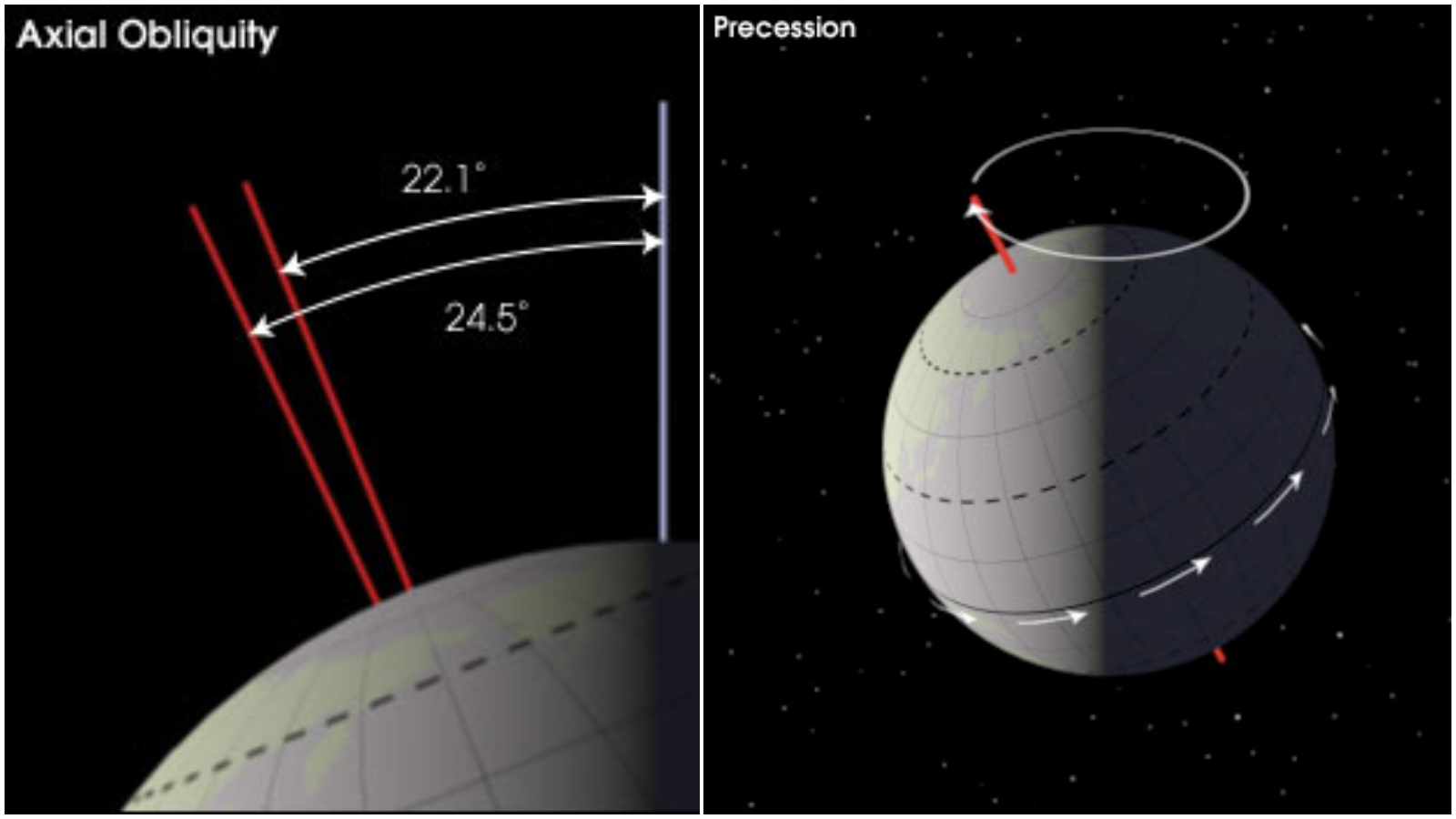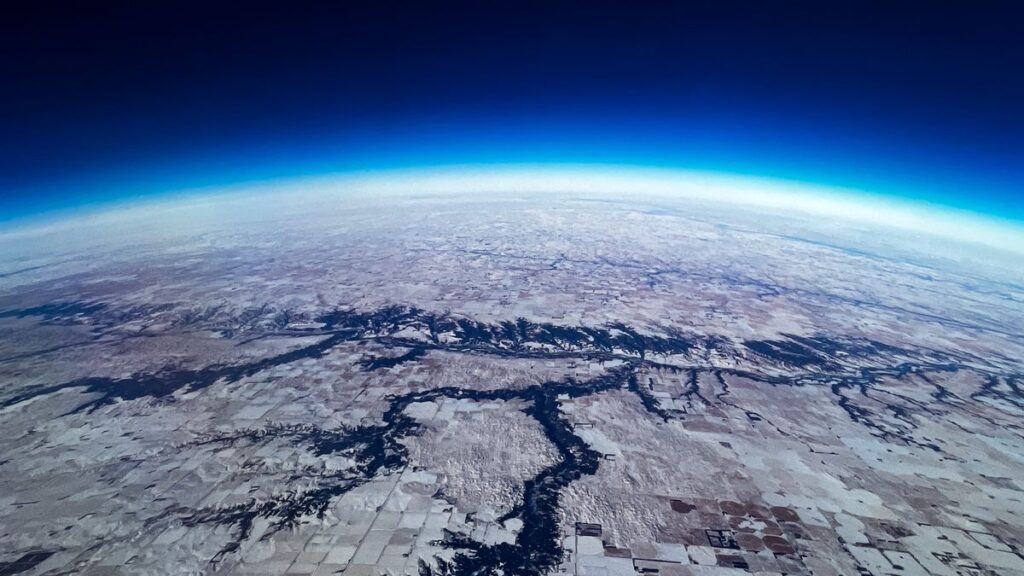Changes in Earth’s tilt relative to the sun have governed the movements of giant ice sheets over the past 800,000 years, triggering the start and end of eight ice ages, new research suggests.
The new study revealed an “amazing correlation” between Earth’s tilt and ice sheet formation, said lead author Stephen Barker. Based on these findings, researchers estimated that the next ice age would be well underway in 11,000 years — were it not for human-driven global warming.
“The prediction is that the next ice age will begin within the next 10,000 years,” Barker, a professor of Earth science at Cardiff University in the U.K., told Live Science. However, this result does not take into account our ballooning greenhouse gas emissions, which are heating the planet to the point of preventing ice ages, he said.
Ice ages, or glacial periods, are extremely cold stretches of time that occur roughly every 100,000 years, covering much of the planet with enormous ice sheets for thousands of years at a time. Glacial periods are separated by warmer interglacial periods, when ice sheets retreat toward the poles. Earth is currently in an interglacial period, with the last glacial period having peaked around 20,000 years ago.
Tilt and wobble
Scientists have previously suggested that Earth’s position and angle relative to the sun affect ice sheet formation. In the early 1920s, Serbian scientist Milutin Milankovitch proposed that slight changes in Earth’s axial tilt and the shape of Earth’s orbit could trigger massive glacial events.
Researchers have been testing Milankovitch’s theory for the past 100 years. Notably, a 1976 study found geological evidence showing that two of Earth’s parameters — obliquity and precession, or changes in Earth’s axial tilt and how the axis wobbles around itself, respectively — play a part in the waxing and waning of ice sheets. But the precise role of either parameter has remained unclear.
Related: Giant ice age landforms discovered deep beneath North Sea revealed in amazing detail
Now, Barker and his colleagues say they’ve finally untangled these parameters’ effects.
Earth’s axis is currently tilted at a 23.5-degree angle away from vertical as it rotates around the sun, affecting how much solar energy hits each of the poles, in particular. But the tilt of Earth’s axis naturally gets bigger and smaller in a cycle that lasts about 41,000 years. The axis also wobbles around itself like an off-center spinning top, affecting how much solar energy reaches equatorial regions during the summer within time periods of about 21,000 years.
For the study, the researchers plotted known changes in obliquity and precession over the past 800,000 years. They also plotted the expansion and retreat of ice sheets during this period using existing data from microscopic shells, called forams, in ocean sediment cores. The relative abundance of certain types of oxygen in forams reveals how far ice sheets extended when the organisms were alive, Barker explained.

The results from combining these plots were a “fall off the chair moment,” Barker said. “We found this amazing correlation […] that says there’s a direct relationship between the phasing of obliquity and precession, and then the resulting duration of how long it takes the ice sheets to decay,” he said.
Put simply, ice sheet expansion from the poles toward the equator appears to be directly governed by obliquity. The retreat of ice sheets from the equator back to the poles, on the other hand, is more dependent on precession. The researchers revealed their findings in a study published Thursday (Feb. 27) in the journal Science.
The results are perhaps unsurprising, given that obliquity and precession affect how much sunlight reaches polar and equatorial regions, respectively, Barker said. “Depending on where you are on Earth, you’ll find more influence from precession or obliquity,” he said.
The plots were so neat that the scientists extrapolated the data and estimated when the next glacial period would occur if the climate was changing only according to natural cycles, Barker said. More research is needed to pin the timings down, but ice sheets would likely start expanding in around 10,000 to 11,000 years and reach their maximum extent within the following 80,000 to 90,000 years. They would then take another 10,000 years to retreat to the poles.
There is much debate around the timing of the next glaciation, but most experts agree that humans are disrupting these cycles through global warming. “If CO2 stays high, you won’t get a new glaciation,” Barker said.
That’s not to say that cooking the planet is a good idea, Barker cautioned. “What we don’t want is for people who want to emit more CO2 into the atmosphere to jump on this,” he said.
Rather, the point of this study and future research is to build a picture of what the climate would do over the next 10,000 to 20,000 years without the impact of human activity, Barker said. The goal is then to provide a long-term estimate of humanity’s impact on the planet, he said.
